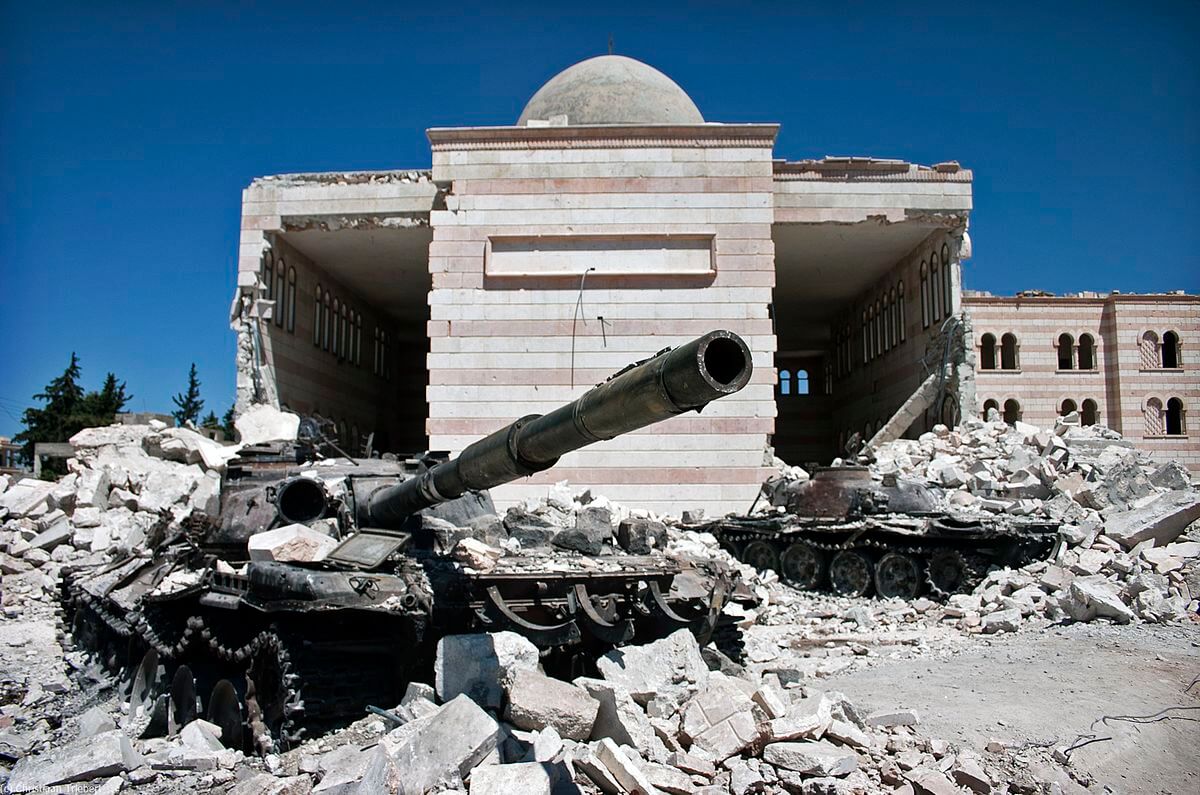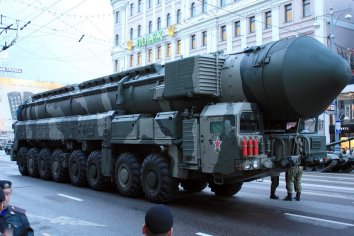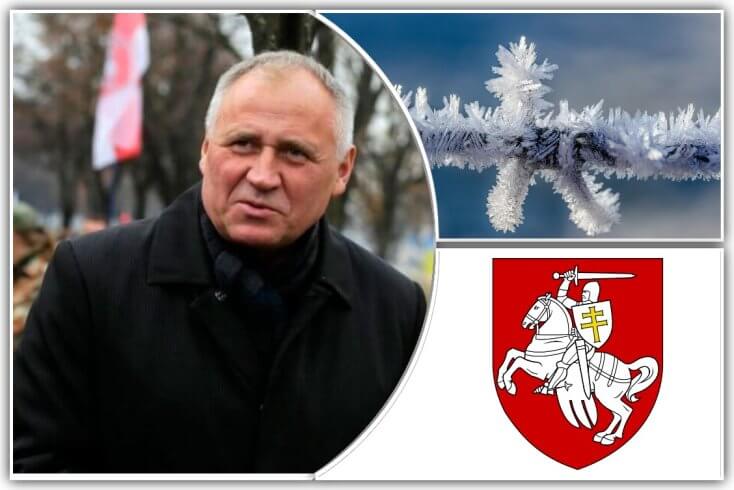Startled by the swift collapse of Bashar al-Assad’s regime, Alaksandar Łukašenka quickly drafted another “defense blueprint,” worried that Russia may not be able to guarantee his security if similar events unfold in Belarus.

Security documents
State media have long portrayed the Belarusian authoritarian leader as a peacemaker—an advocate for stability in Belarus and an international mediator pushing for a quick end to the war in Ukraine. However, this image has been overshadowed by his increasing militaristic rhetoric and actions.
On December 6, Łukašenka asked Russian President Vladimir Putin to deploy Russian Oreshnik missiles, signaling a new phase of military escalation.
Four days later, on December 10, in Barysaŭ, Łukašenka escalated his belligerent rhetoric, citing threats from the West and warning Europe that he would not hesitate to use nuclear weapons or Oreshnik missiles.
On December 12, he convened a meeting of the Security Council to discuss a defense blueprint for 2026-2030. This move followed the adoption of several key security documents earlier in the year, including the Concept of National Security, the Military Doctrine, the Concept of Security of the Union State, and the Treaty between Belarus and Russia on Mutual Security Guarantees.
Łukašenka likely believes that producing more paperwork will enhance his security.
Additionally, on December 13, Security Council Secretary Alaksandar Valfovič conducted an unannounced inspection of the border with Ukraine at Łukašenka’s direction.
Strategic marginalization
There are two key reasons behind his hostile rhetoric and militaristic fever, which Łukašenka alluded to during his visit to Barysaŭ.
First, his plan to deploy Oreshnik missiles may provoke public discontent. Łukašenka admitted that such a decision would be a tough sell ahead of the January presidential election. He defended the idea, framing it as a necessary response to US plans to station similar missiles in Germany. However, this US deployment is not expected until at least 2026 and remains uncertain, particularly with a change of administration in the US on the horizon. Meanwhile, Moscow has already decided to move forward with deploying Oreshnik missiles and accelerating the arms race.
Second, in discussing the use of Russian weapons stationed in Belarus, Łukašenka emphasized that he could order strikes without Moscow’s approval. He claimed that Belarus would choose its military targets independently, while Valfovič asserted that Łukašenka has his own “red button.”
These claims, however, appear to be a desperate attempt to save face. As political analyst Juryj Drakachrust observed, Belarus is not even a pawn in the strategic chess game; it is merely a square on the chessboard.
Łukašenka’s insecurities
The fall of Bashar al-Assad’s regime may have played a role in Łukašenka’s militaristic escalation. The rapid and unexpected collapse of Assad’s government must have been a shock to Łukašenka, especially since even Russia’s support could not save the Syrian leader.
Łukašenka takes the overthrow of dictators personally, seeing it as a threat to his own rule, which he considers sacred. He fears that a similar scenario could unfold in Belarus, and views such events as a direct challenge to his leadership.
For this reason, Łukašenka often defends toppled leaders. For instance, he condemned the arrest and transfer of Slobodan Milošević to an international tribunal as “outrageous and undemocratic.”
In 2005, during his address at the UN General Assembly, Łukašenka voiced concern over the persecution of political leaders in Yugoslavia and Iraq. He denounced the prosecution of Milošević as a travesty and criticized Saddam Hussein’s handover to the victors as barbaric. Łukašenka argued that these leaders were denied the right to a fair trial because their states had been destroyed.
Łukašenka’s support for these leaders went beyond words. He offered political asylum to Milošević, Hussein, and deposed Kyrgyz President Kurmanbek Bakiyev.
On December 10, during his visit to Barysaŭ, Łukašenka once again defended dictators. He praised Hafez al-Assad, Saddam Hussein, Muammar al-Qaddafi, and Fidel Castro as strong leaders who stood up for their people and countries. “In what way is Bashar al-Assad a dictator?” he asked. “A doctor by profession, I’ve known him for a long time. We are on good terms. He’s never killed anyone.” He claimed that the West demonized such leaders out of frustration at their inability to control them.
Łukašenka then drew a parallel to himself, stating, “You see how heads of state are demonized. This is something I know firsthand. You also have a dictator running the country.” In this remark, he directly connected the criticism of Assad and others to the pressure he faces.
Dictators’ failure triggers militaristic action
From a rational perspective, defending deposed tyrants seems futile. Autocrats who have lost power are universally seen as failures, and focusing on them is a political mistake. Politicians typically seek to align themselves with success stories, not with failed regimes.
However, Łukašenka’s inexplicable sympathy for dictators takes on a nearly mystical and fatalistic character. He often reacts impulsively to the overthrow of other autocrats.
Take, for example, his reaction to Muammar al-Qaddafi’s death in 2011. Łukašenka responded by ordering the formation of territorial defense units, demanding annual military exercises and conferring the rank of major general on the chairpersons of the regional and Minsk executive committees.
Similarly, the fall of the Assad regime prompted Łukašenka to act. His immediate response was to convene the Security Council for an urgent meeting and adopt a new defense blueprint, accompanied by aggressive rhetoric.
These actions may seem irrational, but they appear to be a form of psychological coping—a way for Łukašenka to regain a sense of control amid growing uncertainty.




